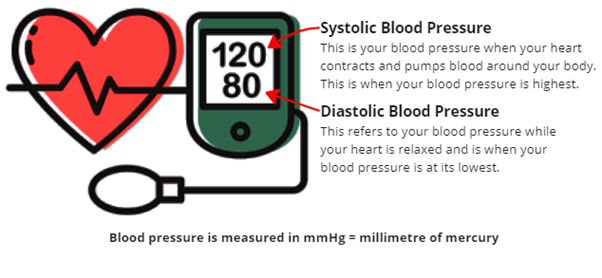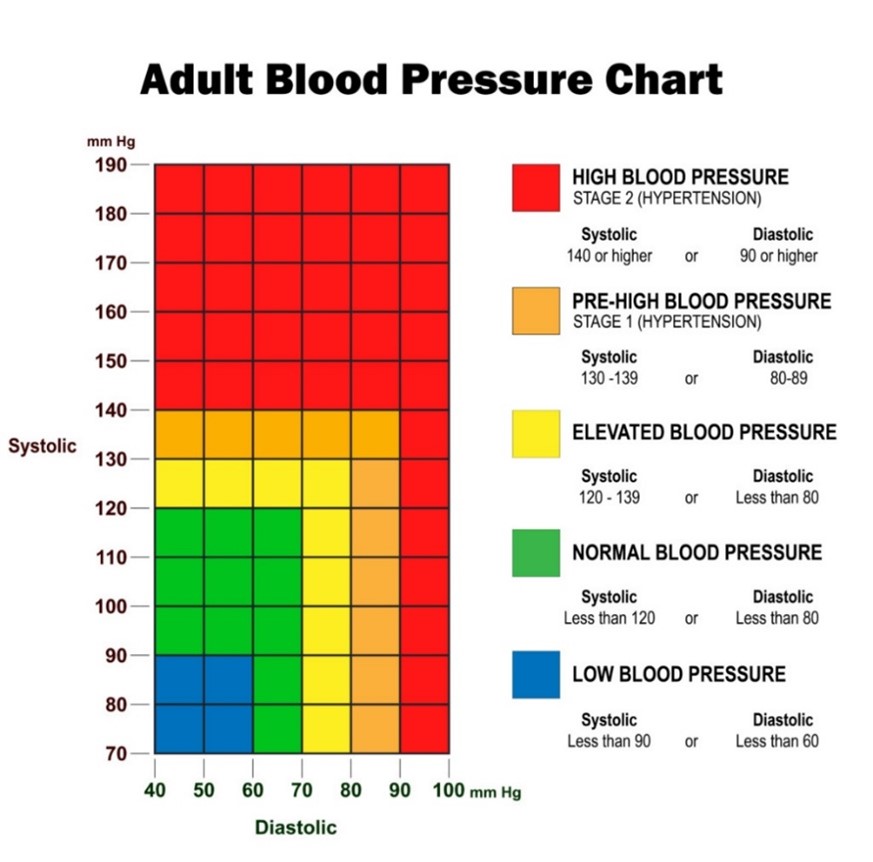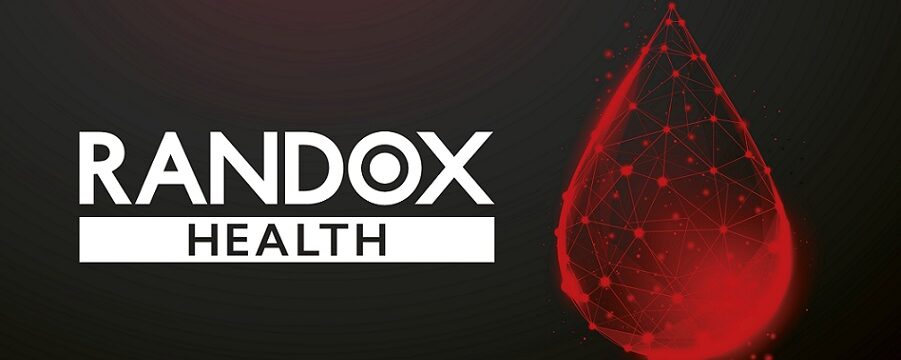06/09/2023
What do you think of when you think of pressure? Perhaps it’s a looming deadline or maybe the traffic is making you late for work. Some kinds of pressure are beneficial. Pressure makes diamonds, purifies contaminated water and is how your car produces power. Pressure is also often the driving force that pushes us to achieve. Similarly, your blood pressure is an essential part of the successful circulation of blood around your body. When your heart contracts, it propels blood outward with force, circulating it around all the arteries in your body. Know Your Numbers week give us an opportunity to look at the importance of checking your blood pressure and understanding what the numbers mean.
When healthy and relaxed, your arteries are flexible and provide just the right amount of resistance to enable efficient blood flow. An estimated 1 billion people globally have high blood pressure1. But what does that mean exactly?
High blood pressure is the result of the stiffening and constriction of your arteries. These narrower, more rigid arteries cause higher resistance to blood flow, ultimately causing the heart to work harder to pump the blood to the farthest parts of you.
Over time, this additional work can cause damage to the myocardium, or heart muscle, as well as other organs like the brain and kidneys. Know Your Numbers Week, organised by Blood Pressure UK, is an annual event in September that aims to increase awareness of the dangers of high blood pressure, promote the importance of knowing your blood pressure and provide you with information on how you can help lower yours.
Facts about High Blood Pressure.
There are symptoms of the condition however these are quite common and can be overlooked, these include:
- Blurred vision.
- Nosebleeds.
- Shortness of breath.
- Chest pain.
- Dizziness.
- Headache
Unfortunately, many people are reluctant to look into it further as it’s estimated that 6 million people in the UK are unaware that they have the condition.7
High blood pressure is one of the highest causes for heart attacks and strokes. 350 people suffer a heart attack or stroke every single day and it’s known that 1/2 of these strokes & heart attacks are the result of having high blood pressure.7
A total of £2.1 billion is spent fighting cases of hypertension across the UK.7
KNOW THE NUMBERS.
If you’re unfamiliar with blood pressure, the numbers can seem abstract or confusing. Figure 1 shows a blood pressure reading and what the numbers mean.

This is a blood pressure reading of 120/80mmHg. This is the optimal reading for blood pressure. Readings below 90/60mmHg are considered to be low blood pressure. Low blood pressure usually isn’t an issue but may cause you to feel faint or dizzy and may indicate a wider health problem. High blood pressure is the real danger. Blood pressure readings above 140/90mmHg are associated with a much higher risk of serious health problems.

This graph shows blood pressure values and their significance. It is important to note that many things can affect your blood pressure such as the time of the day, the temperature, what and when you last ate and how much stress you’re under. For this reason, it’s normally necessary to have multiple blood pressure readings over a period of time to get an accurate picture of your cardiovascular health.
KNOW THE COMPLICATIONS.
Heart Disease and Stroke
Your blood carries oxygen and other nutrients around your body, supplying all your vital organs and tissues. When your arteries narrow and stiffen, the chances of them becoming blocked or bursting increases. This results in a lack of oxygen in a part of the body. The most common examples of this are heart attack and stroke.
Strokes are caused by a lack of oxygen to the brain. Ischemic strokes are those which are caused by a blocked artery, which can result from high blood pressure2. Haemorrhagic strokes are caused by bleeding in or around the brain because of a burst blood vessel. High blood pressure can weaken the blood vessels, increasing the likelihood of a rupture3.
Heart attacks come in a few different forms. When the coronary arteries (those which supply oxygenated blood to the heart) are affected, it is known as coronary artery disease (CAD), the most common cause of heart attack4.
Heart attacks can also be caused by clot formation in the arteries of the heart, leading to a reduction in the heart’s oxygen supply.
This lack of oxygen causes the heart muscle to die, resulting in the development of scar tissue that restricts the heart’s ability to perform its function. This chain of events commonly leads to a heart attack.
Cause Of A Stroke
This illustration depicts a blood clot forming in a blood vessel located within the brain, the primary cause for a stroke.
Compromised arteries mean your heart must work overtime to carry out its function. This extra work can cause the heart walls to thicken and become stiff, making it more difficult to pump blood. This is called hypertrophy.
When hypertrophy occurs in the left ventricle (the main part of the heart which pumps blood) it is known as Left Ventricular Hypertrophy5. Uncontrolled high blood pressure is one of the main causes of left ventricular hypertrophy, which can lead to abnormal heart rhythms and heart failure.
While heart failure doesn’t mean your heart is about to stop beating, it is a serious condition that requires medical attention.
Kidney Disease
High blood pressure can lead to the narrowing and stiffening of blood vessels, affecting not only the heart but also various other parts of the body. The kidneys are particularly susceptible to damage from high blood pressure.
When damage occurs in the blood vessels surrounding the kidneys, oxygen supply to the kidneys is reduced, resulting in scarring and ultimately diminished kidney function. High blood pressure can also damage the small filtering structures of the kidneys, meaning that the kidneys are less able to filter waste products from the blood. This progressive loss of kidney function is known as chronic kidney disease.
Your kidneys play a crucial role in producing hormones that regulate blood pressure. Consequently, an imbalance in these hormones can contribute to elevated blood pressure, which, especially if already high, can have severe implications for your health6.
Diabetes
The relationship between high blood pressure and diabetes is intricate. While they don’t directly cause each other, individuals with type 2 diabetes are more susceptible to other health complications, including high cholesterol and elevated blood pressure.
These factors are recognised contributors to the progression of cardiovascular diseases, strokes, and kidney disorders7.
Other Complications
Vascular dementia is a cognitive disorder caused by impaired blood flow to the brain, often stemming from conditions like high blood pressure and atherosclerosis (a buildup of fatty deposits in arteries). Reduced blood supply damages brain cells, leading to memory loss, cognitive decline, and difficulties with reasoning. Controlling blood pressure and managing vascular risk factors can help mitigate the risk of vascular dementia and preserve cognitive function7.
Elevated blood pressure damages blood vessels and reduces blood flow, which can impede the ability to achieve or maintain an erection. Additionally, hypertension often accompanies other cardiovascular issues that further contribute to erectile dysfunction. Effective management of high blood pressure can help alleviate this condition and improve overall sexual health7.
Over ¼ of people in the UK are considered obese8. Obesity can significantly contribute to conditions like high blood pressure, heart disease, stroke, and even certain types of cancer. Even a modest weight loss of just 3% of your body weight can lead to a reduction in health risks7.
Finally, Metabolic syndrome is a cluster of risk factors including obesity, high blood pressure, high blood sugar, and high cholesterol, which increase the risk of heart disease, stroke, and diabetes.
KNOW THE MAINTENANCE
Maintaining a healthy blood pressure can sound like a daunting task for those with hypertension. But the good news is, by lowering your blood pressure by as little as 10mmHg, you can reduce your risk of heart attack or stroke by up to 25%7. Keeping active and maintaining a healthy weight are the cornerstones of healthy blood pressure. Reducing your alcohol intake, quitting smoking, getting enough sleep, and sticking to a healthy diet low in salt, saturated fats and sugar can also have large, positive effects on your blood pressure. However, it is really important that if you have high blood pressure, you speak to a medical professional who can advise you on the correct course of action and assist you in getting medication, if necessary.
Preventative Health Testing at Randox Health
At Randox Health, we believe a preventive and preemptive approach to our health is crucial to maintaining our well-being and vitality. Know your numbers week is an opportunity to raise awareness about how being proactive about your health can benefit your well-being and vitality. Testing your blood pressure along with a wide range of other biomarkers and data points, Randox Health strives to equip patients with the necessary tools to take control of their own health by helping them identify risk factors as early as possible and take steps, backed by scientific literature, to improve their long-term health.
The Randox Health Vital Health Check is the penultimate hypertension, high cholesterol and diabetes test. It measures over 20 key markers including Blood Pressure, Personal Measurements, HDL Cholesterol, LDL Cholesterol, Total Cholesterol, Full Blood Count and HbA1c to provide a comprehensive image of your risk of heart attack, stroke, and type 2 diabetes. You can book an appointment at a clinic at a time and place that suits you during which we’ll take your personal measurements and blood samples. You’ll then receive your results within 2-4 working days via a password-protected email. In addition, you have the option of booking a remote GP consultation to discuss your results with a specialist who can advise you on the most appropriate course of action.
If you’d like to learn more about our services and what we can do for you, please visit our website at https://randoxhealth.com. Alternatively, don’t hesitate to get in touch and one of our highly trained team will be happy to answer any questions you have.
Reference List
- World Heart Federation. Hypertension . https://world-heart-federation.org/what-we-do/hypertension/. Published 2023. Accessed August 17, 2023. https://world-heart-federation.org/what-we-do/hypertension/
- Hui C, Tadi P, Patti L. Ischemic Stroke. StatPearls; 2023.
- John Hopkins Medicine. Types of Stroke . https://www.hopkinsmedicine.org/health/conditions-and-diseases/stroke/types-of-stroke.
- Shahjehan RD, Bhutta BS. Coronary Artery Disease. StatPearls; 2023.
- Bornstein AB, Rao SS, Marwaha K. Left Ventricular Hypertrophy. StatPearls; 2023.
- Mayo Clinic. Chronic Kidney Disease. Chronic Kidney Disease Care. Published September 3, 2021. Accessed August 2, 2023. https://www.mayoclinic.org/diseases-conditions/chronic-kidney-disease/symptoms-causes/syc-20354521
- Blood Pressure UK. Understanding your blood pressure. https://www.bloodpressureuk.org/your-blood-pressure/understanding-your-blood-pressure/.
- Baker C. Obesity Statistics.; 2023. Accessed August 17, 2023. https://commonslibrary.parliament.uk/research-briefings/sn03336/



